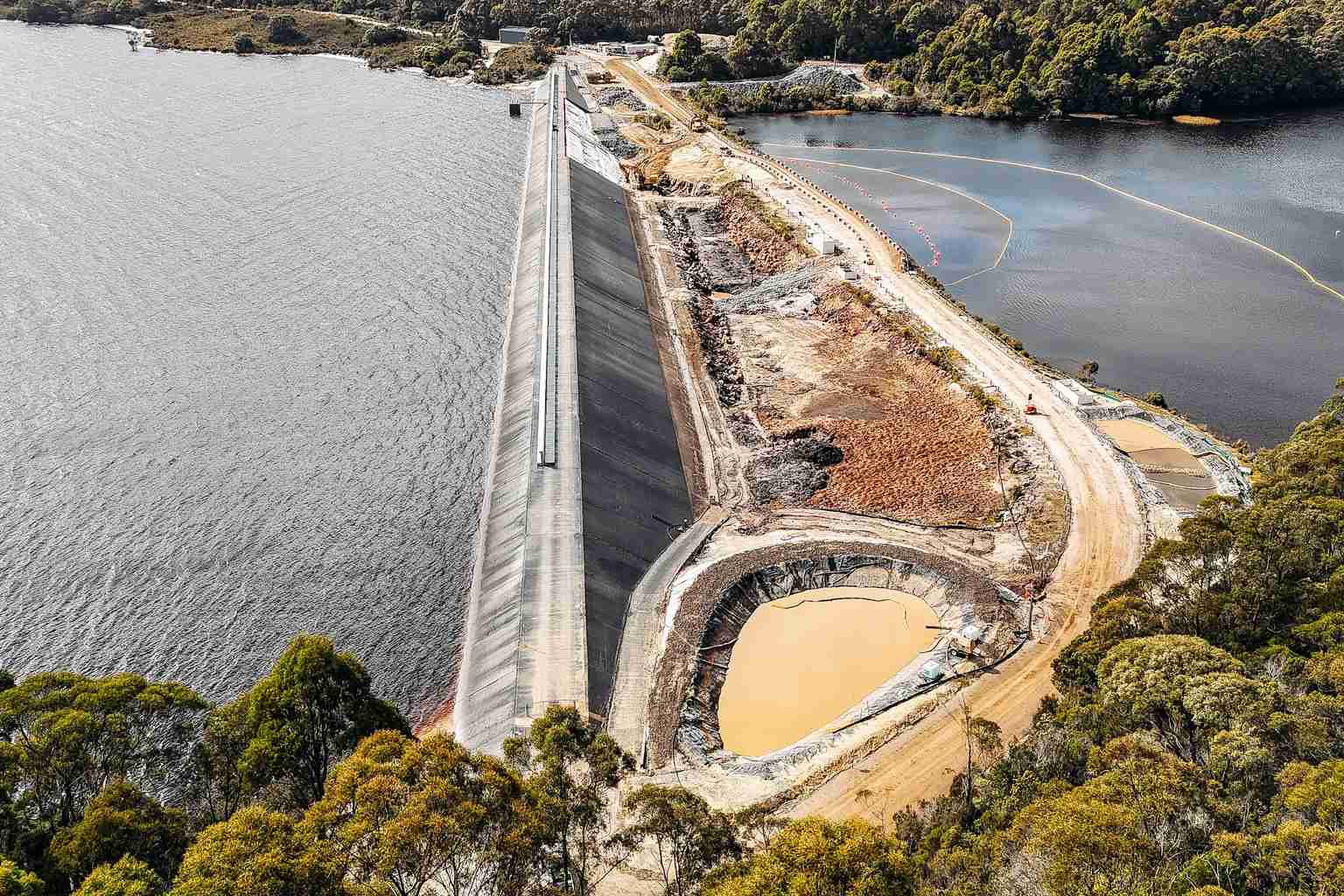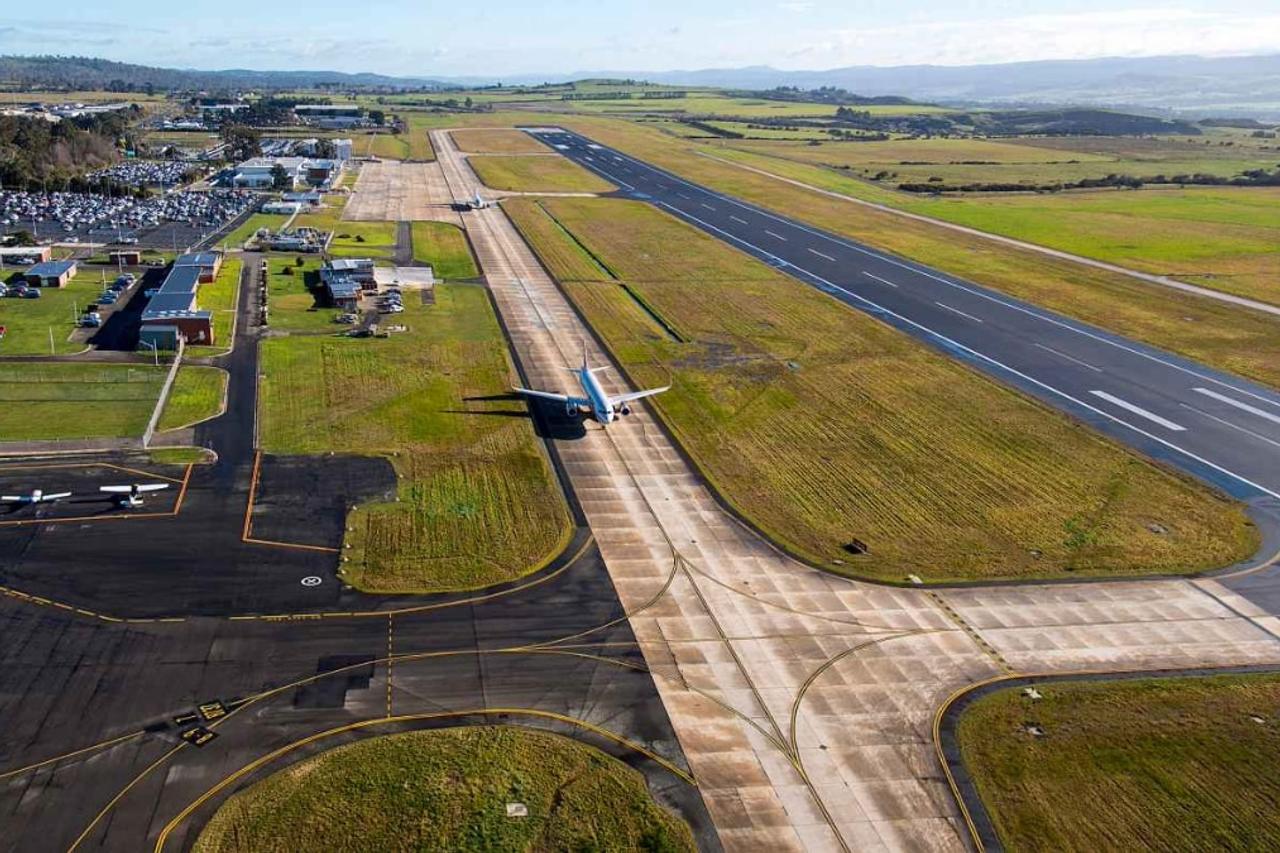Artificial intelligence search results have been caught giving fishers the wrong advice about Tasmania’s fishing laws, with authorities warning that relying on AI alone could land you with a hefty fine.
A recent AI-generated “AI Overview” answer from Google to a question about shark fishing at St Helens Wharf told anglers they could “catch and keep sharks” while fishing there.
But Fisheries Tasmania says that advice is flat-out wrong. The area is classified as a shark refuge, where targeting sharks is strictly prohibited.
Sharing the dodgy result on social media, Fisheries Tasmania told fishers not to trust AI when it comes to the rules.
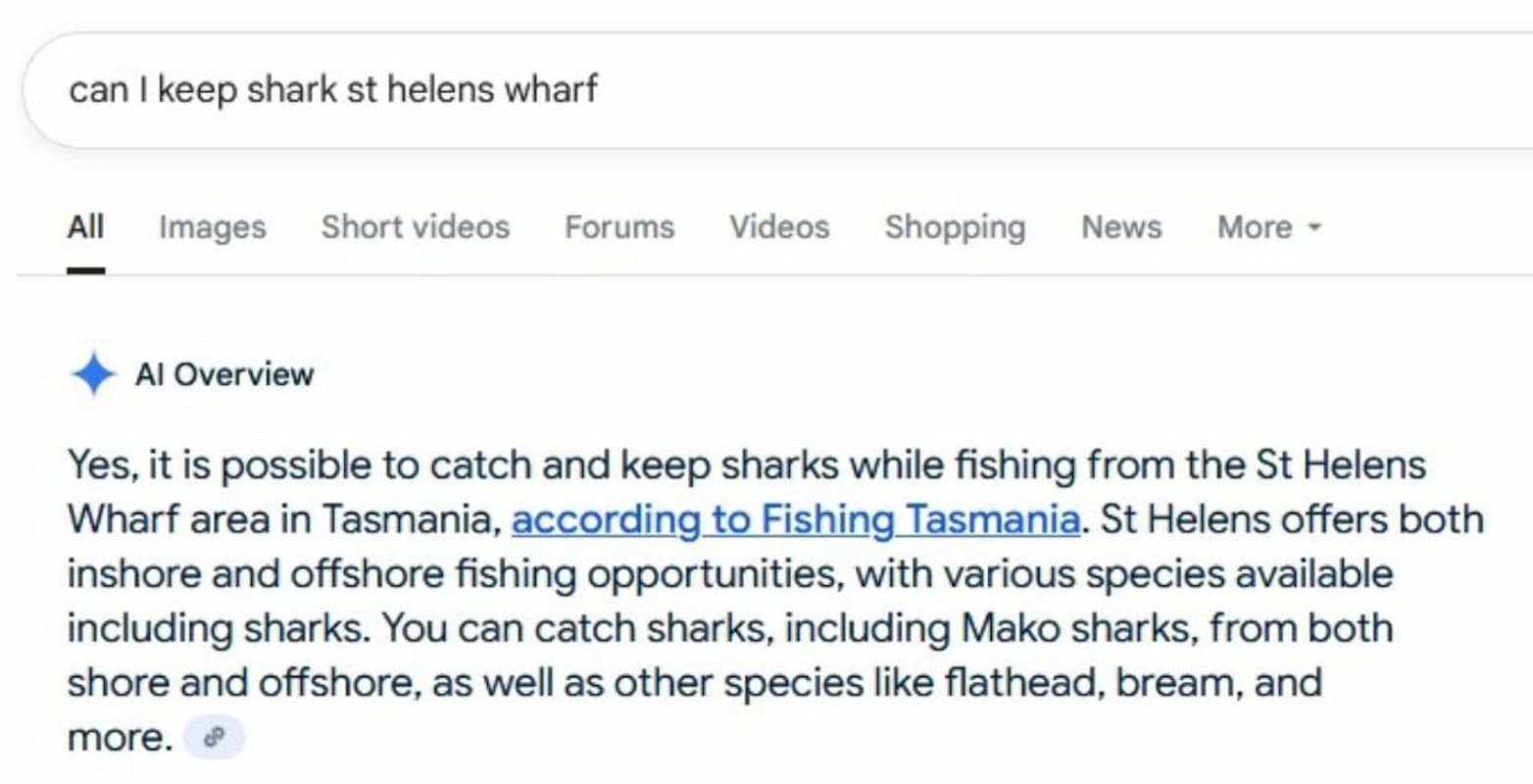
“AI pulls on lots of different sources to generate an answer and its answers aren’t always right,” it said.
“Don’t let an incorrect AI-generated answer lead to you catching a fine instead of a fish.”
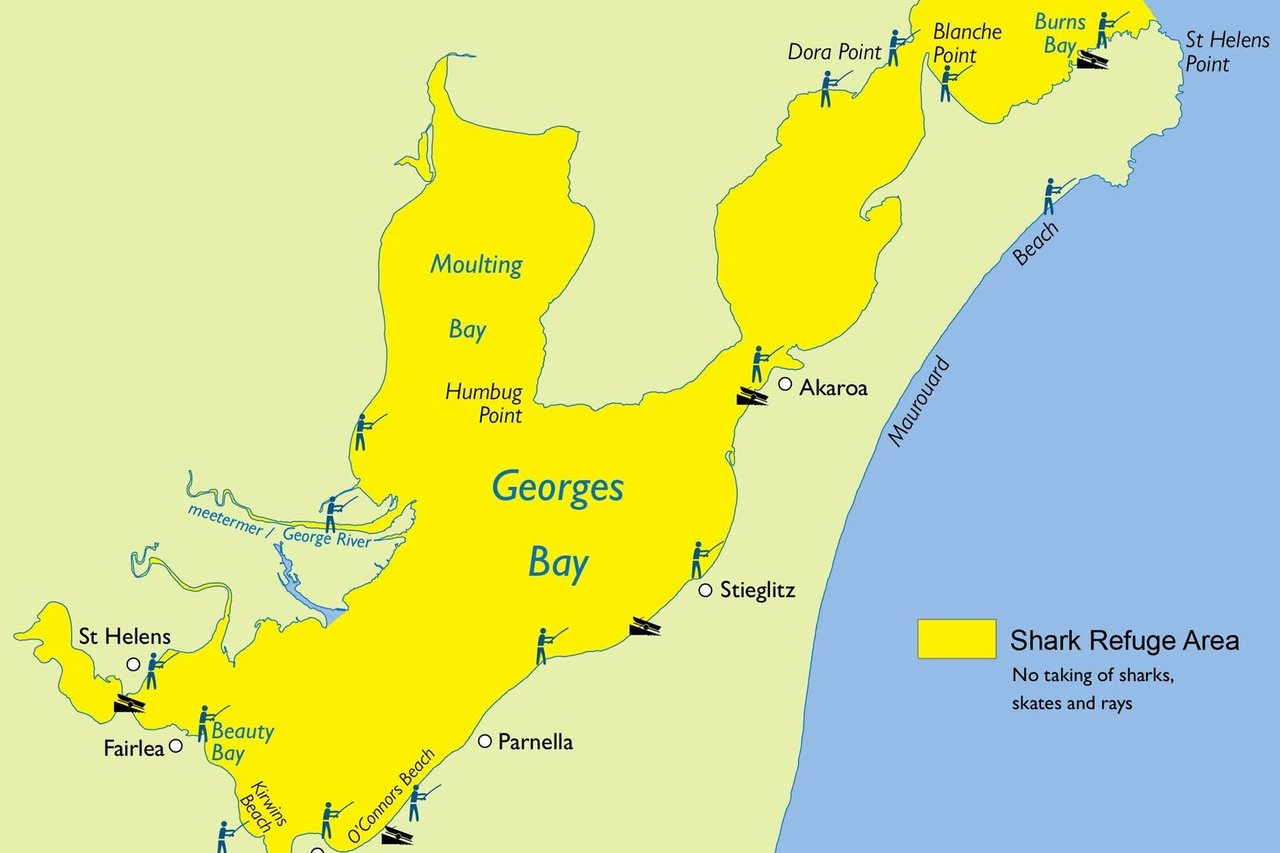
The misleading response also suggested fishers could catch mako sharks from both the shore and offshore around St Helens, as well as other species like flathead and bream.
Under the refuge rules, any sharks, skates or rays caught by accident must be released back into the water straight away.
Fisheries Tasmania says the real rules are easy to find on the Fishing Tas app or the fishing.tas.gov.au website.
The warning comes as AI-powered search features pop up more and more across major search engines, often showing up at the top of results where users might assume they are accurate.
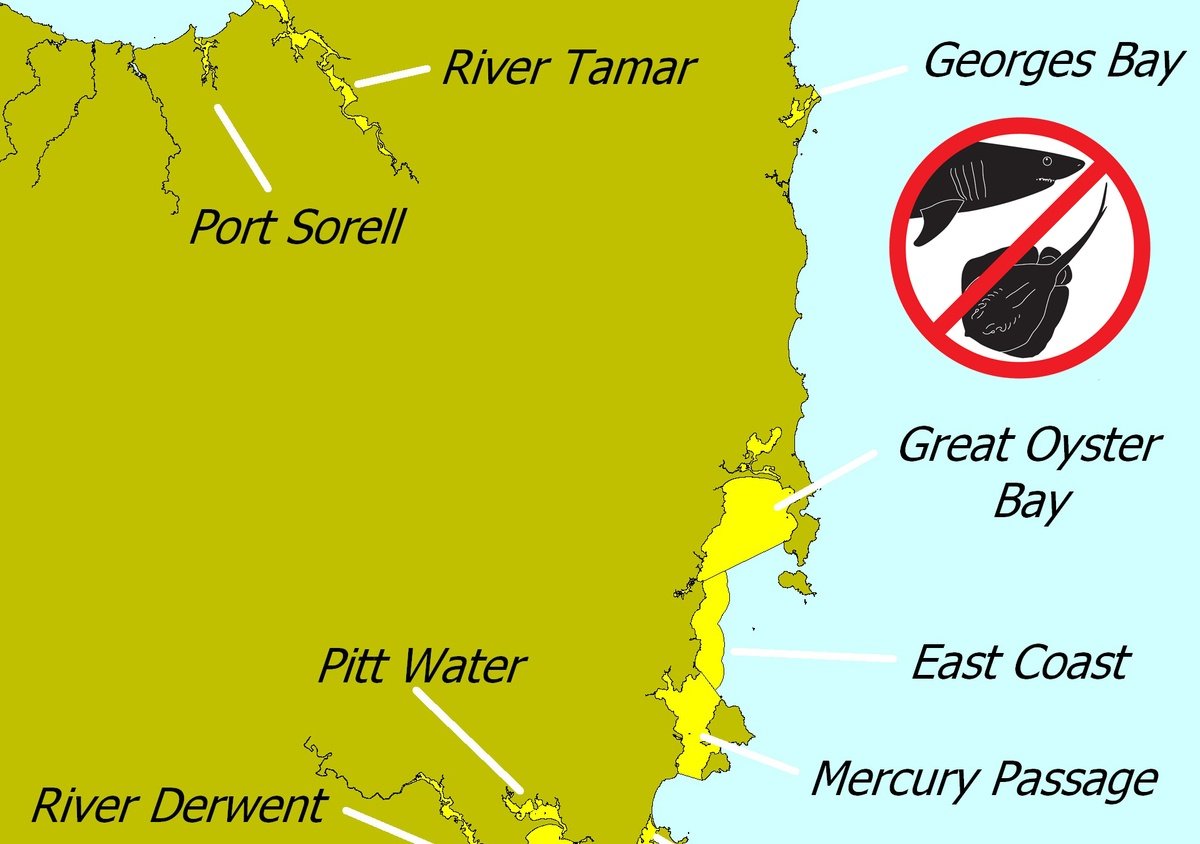
Google says an “AI hallucination” happens when the model spits out an incorrect or misleading result.
It says these mistakes can happen for several reasons, including not enough training data, wrong assumptions made by the model or biases in the data it is trained on.



